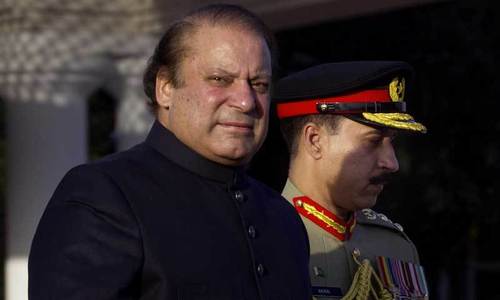
GIVEN that both Donald Trump and Brexit managed to overturn the opinion polls and confuse the experts, it may seem reckless to forecast what’s ahead in 2017. After all, for decades now some of the world’s finest minds at the world’s greatest universities have been trying to turn the ancient study of politics into the modern academic discipline of political science. Despite their best efforts, international relations and public affairs have remained stubbornly unpredictable.
Sometimes, but not always, the betting markets are a better guide to the future than the pundits and the polls. As a general rule, it seems, when people are putting their money where their mouth is, they tend to get it right. On that basis it would seem that Mr Trump can look forward to eight years in the White House: he is the hot favourite for 2020. The punters also suggest that his first foreign visit will be to Russia. In France, meanwhile, most money is on François Fillon to win the presidency and Angela Merkel to get a fourth term in Germany.
But in the land of the pure where the betting markets dare not speak their name, we have to rely on more old-fashioned methods of divination. So in the spirit of speculation leavened by guesswork, what’s in store for Pakistan in the coming year?
The betting markets may be a better guide to the future.
The extraordinary Trump phone call has thrown everyone off course. But amidst all the contradictory signals coming from the Trump transition team, there is one consistent theme: he is an American nationalist. It seems next to impossible that he will tolerate a situation in which the US gives military aid to Pakistan and does not get a clear set of concessions in return. The potential for a sharp downturn in US-Pakistan relations is clear. How would a Trump White House react to, let’s say, the US embassy in Kabul being attacked by the Haqqani network or Afghan Taliban fighters commanded from Quetta? The idea that President Trump would continue sending aid to Pakistan in those circumstances seems far-fetched. On the contrary, a much more kinetic response cannot be ruled out.
From the international level to the regional. As long as the residual foreign forces remain in Afghanistan, the country seems locked in a stalemate. The Afghan Taliban may be able to control significant amounts of territory but they are unable to win Kabul. It’s a repeat of the 1990s, with no one group able to deliver a knockout blow.
In India, meanwhile, Modi has so far settled on a policy of trying to isolate Pakistan rather than, as many expected when he came into power, attacking it. The question is whether another Pakistan-based attack — another Mumbai — might change the Indian leader’s thinking. There must presumably come a point when Indian popular opinion demands a more robust response to events such as Pathankot and Uri, and the closer Mr Modi gets to the next Indian election in 2019 the more tempted he’ll be to give the electorate what it wants.
When it comes to politics at home, all eyes will be on Nawaz Sharif. He probably defied even his own expectations in 2016. Last summer there was a genuine fear in his camp that, one way or another, the army would manage not only to get Raheel Sharif’s term extended but also to topple the prime minister. But with a combination of doggedness, guile and judicious use of trips to London for medical treatment, he saw off his namesake and hung on. He should now be able to lead the PML-N into the 2018 elections and he might well win. How the army — or for that matter Imran Khan — would react to yet another Sharif term is tougher to predict. But in 12 months’ time there should be a very real chance of everyone looking ahead to a second successive election in which a democratically elected government will oversee a relatively free and fair election process.
Altaf Hussain, meanwhile, has a busy 2017 ahead. Having seen off the various cases against him in the UK, the MQM leader will need to set about the task of reasserting his authority in Karachi. With many of the party membership remaining loyal, he should be able to break down the opposition of the city’s MQM party leadership and once again burnish his reputation as being a man who, even if does not dare visit Pakistan, remains one of the great survivors of Pakistani politics. It’s reasonable to conclude that his allies-turned-critics in Karachi won’t be looking forward to 2017.
So that’s how the coming year could look. But then again, 12 months ago I predicted that the man who would now be looking forward to four years in the White House would be … President Marco Rubio. It’s a mug’s game, political forecasting.
The writer is a British journalist and author of Pakistan: Eye of the Storm.
Published in Dawn December 29th, 2016














































